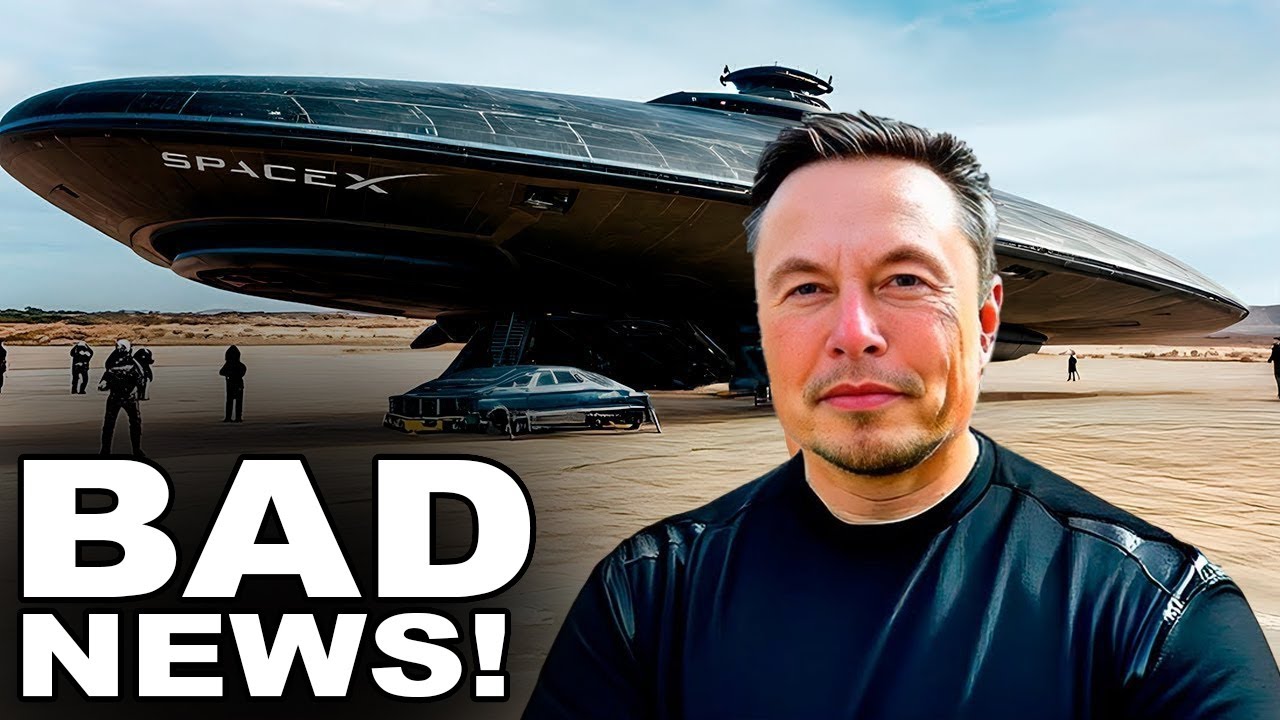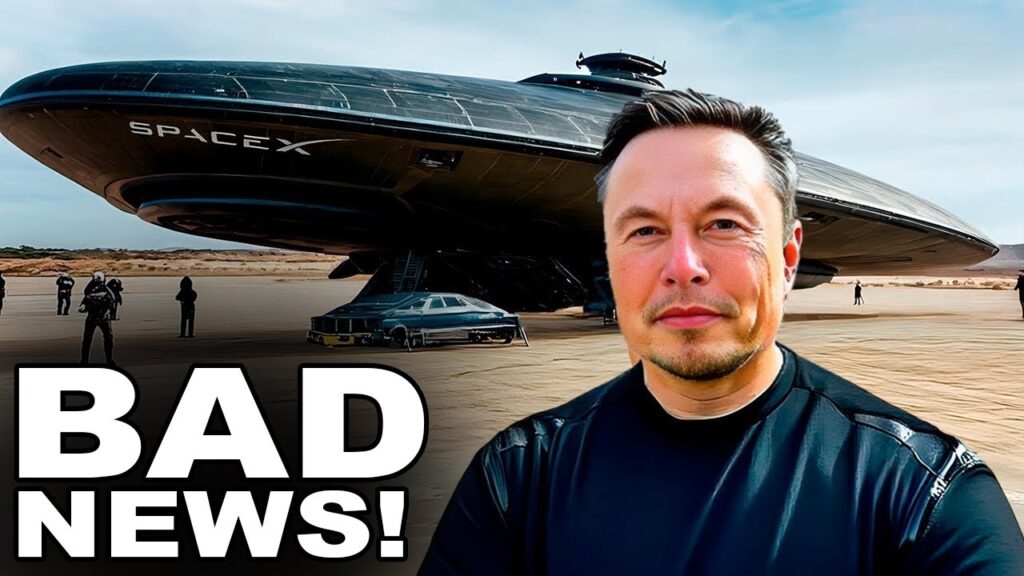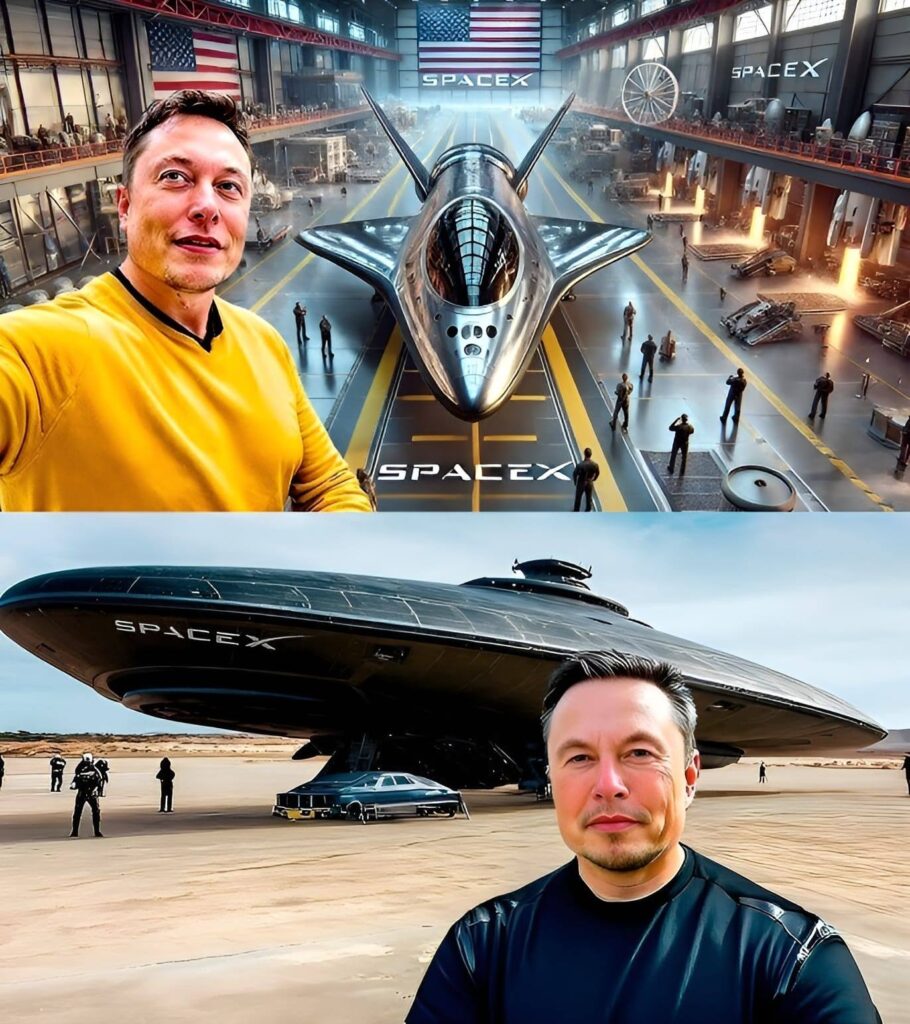
Elon Musk, the visionary founder of SpaceX, is no stranger to pushing the boundaries of technology. From redefining electric vehicles with Tesla to championing renewable energy and exploring the possibilities of life beyond Earth, Musk’s innovations have consistently aimed to reshape industries. Now, recent reports suggest that SpaceX may be venturing into an entirely new frontier: military aviation. The speculation surrounding SpaceX’s potential new aircraft has captured attention worldwide, particularly because of its potential implications for global security and power dynamics.

The SpaceX Vision: Shaping the Future of Military Aviation
While SpaceX has primarily focused on space travel, satellite technology, and exploration missions, Musk’s latest move could signal an expansion into high-speed, high-tech military aircraft. According to industry insiders, SpaceX’s advanced technology in aerospace propulsion, materials, and engineering could lend itself to developing a state-of-the-art military aircraft capable of unmatched speed, maneuverability, and firepower.

Imagine an aircraft designed with SpaceX’s powerful Raptor engines, capable of near-instantaneous travel across continents, effectively making traditional defense systems obsolete. Such a vehicle could potentially strike or neutralize threats with unprecedented speed, adding a new dimension to national defense. While no official confirmation has been made, the concept of SpaceX contributing to military defense technology signals an ambitious and potentially transformative development.
Revolutionary Technology: Game-Changing for Defense?
SpaceX’s technological edge lies in its cutting-edge propulsion systems and advanced aerospace designs. Drawing from its successes with reusable rockets, SpaceX could theoretically create aircraft with rapid deployment capabilities, exceptional fuel efficiency, and reusability in high-stakes scenarios. The possibility of a SpaceX military aircraft with hypersonic speed — traveling at over five times the speed of sound — could render traditional defense measures, particularly those reliant on slower ballistic systems, nearly ineffective. Such an aircraft might neutralize threats long before they reach critical targets, providing a decisive advantage in national defense and global power balance.
Reports also suggest that SpaceX could use advanced materials science to construct aircraft with unmatched durability and stealth capabilities. Leveraging innovations in lightweight, heat-resistant materials could allow the aircraft to evade radar detection and resist extreme atmospheric conditions, expanding its functionality in a range of combat or surveillance situations. If Musk’s company can integrate these technologies successfully, it could represent a seismic shift in aerospace military capabilities.
Global Power Dynamics: A New Era in Warfare?
The potential for a SpaceX military aircraft raises questions about the broader implications for global power structures. Historically, advancements in military technology have played pivotal roles in defining geopolitical influence, as seen with nuclear weapons, aircraft carriers, and ballistic missiles. If Musk’s new aircraft possesses the abilities speculated, it could disrupt traditional power balances, particularly in regions where adversarial relations with the United States are most pronounced.
With Russia frequently in the headlines regarding defense and territorial disputes, the suggestion of SpaceX’s aircraft “wiping out” potential threats within seconds is provocative. Such a capability would indeed alter the strategic landscape, shifting the balance in favor of nations equipped with SpaceX’s technological advantages. This development could lead to increased interest and investment in similar innovations worldwide, potentially triggering a new arms race centered on aerospace technology.
A Visionary’s Influence: Elon Musk’s Approach to Defense Technology
Elon Musk’s trajectory from an entrepreneur focused on electric vehicles and space to a potential military innovator underscores his adaptability and foresight. His interest in defense is not entirely new; in recent years, SpaceX has collaborated with the U.S. government, including the Pentagon, to provide Starlink satellite technology for secure, global communications. The leap into aircraft specifically designed for military use could be a natural progression for Musk, who has often spoken about the importance of maintaining technological superiority.
However, such ambitions raise ethical and political questions. Musk has frequently highlighted the risks associated with artificial intelligence and advanced military technologies. Entering the military aviation sector might place him in a position to influence policies around the responsible use of technology in defense.
Looking Forward: The Future of SpaceX’s Role in Defense
While Musk and SpaceX have not yet confirmed details about the potential new military aircraft, the idea represents a convergence of commercial aerospace innovation and national defense. If SpaceX succeeds, the company could revolutionize not only space travel but also redefine air and ground-based defense systems globally. Such developments underscore the importance of maintaining leadership in technology to secure national and global interests.
For now, the world watches with anticipation, knowing that if anyone can realize such an ambitious vision, it’s Elon Musk and his team at SpaceX. Should these speculations prove true, SpaceX’s new aircraft might not only reshape the skies but could potentially transform the entire fabric of modern warfare and international relations.